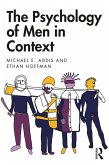
eBook, PDF
7. August 2015
Taylor & Francis eBooks
eBook, ePUB
7. August 2015
Taylor & Francis eBooks
Ähnliche Artikel






28,95 €
Sofort per Download lieferbar

eBook, PDF
30. Juni 2023
Taylor & Francis eBooks

Ähnlichkeitssuche: Fact®Finder von OMIKRON









Es gelten unsere Allgemeinen Geschäftsbedingungen: www.buecher.de/agb
Impressum
www.buecher.de ist ein Internetauftritt der buecher.de internetstores GmbH
Geschäftsführung: Monica Sawhney | Roland Kölbl | Günter Hilger
Sitz der Gesellschaft: Batheyer Straße 115 - 117, 58099 Hagen
Postanschrift: Bürgermeister-Wegele-Str. 12, 86167 Augsburg
Amtsgericht Hagen HRB 13257
Steuernummer: 321/5800/1497
USt-IdNr: DE450055826
Bitte wählen Sie Ihr Anliegen aus.
Rechnungen
Retourenschein anfordern
Bestellstatus
Storno